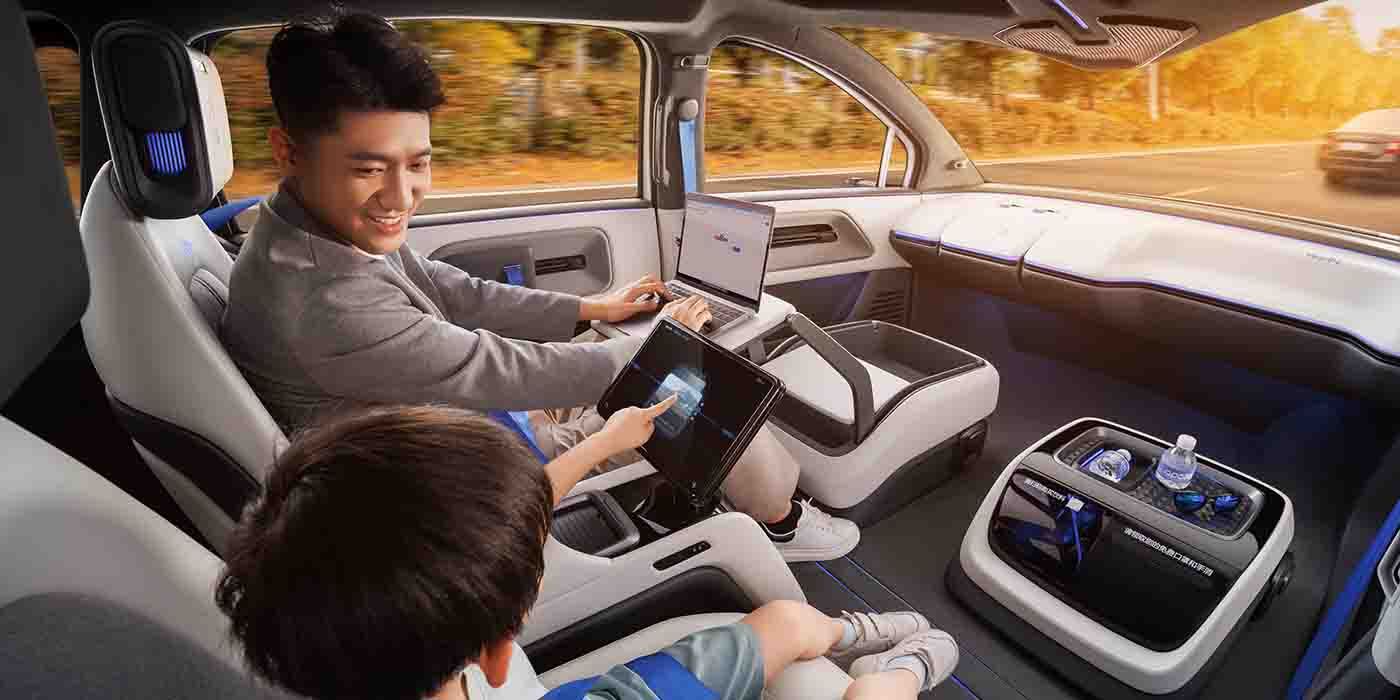
During its Baidu World 2022 technology conference today, the Chinese technology company unveiled its sixth-generation fully-autonomous vehicle – the Apollo RT6. With a detachable steering wheel, Baidu has created a production-ready EV with Level 4 autonomous driving capability that is expected to join the Apollo Go robotaxi fleet next year.
Although Baidu is primarily known as a search engine giant it China, it has turned its focus toward EVs and autonomous driving technologies the past several years. In fact, its Apollo ecosystem has garnered over a hundred partnerships with various manufacturers and suppliers including Toyota, Ford, and Volkswagen.
Additionally, the internet company has been venturing into robotaxis using its Apollo software. In January of 2021, Baidu announced it was expanding from software development into physical EV production, joining forces with Geely to produce electric vehicles. By March, the companies introduced JIDU – an intelligent robot EV startup born out of $300 million in startup capital.
The Apollo Go ride hailing fleet has been delivering autonomous rides in got two years using EVs retrofitted with Baidu’s Apollo technology. Now, however, Baidu has unveiled its sixth-generation robotaxi – the first to be built entirely from the ground up.
Apollo RT6 looks to accelerate Baidu’s robotaxi deployment
Baidu shared details of its latest autonomous robotaxi in a press release following its official debut in China today.
According to the AI company, it was able to get the cost of the Apollo RT6 down to about $37,000 per EV, making it one of the most affordable EV options, on top of some of the most advanced autonomous driving technology. Baidu co-funder and CEO Robin Li elaborated:
This massive cost reduction will enable us to deploy tens of thousands of AVs across China. We are moving towards a future where taking a robotaxi will be half the cost of taking a taxi today.
Here are some of the noteworthy specs on the Apollo RT6:
- Purposefully designed for fully autonomous driving, with a detachable steering wheel allowing for more passenger space
- According to Baidu: allows for installation of extra seating, vending machines, desktops, or gaming consoles
- L4 autonomous driving capable, 1,200 TOPS of computing power, and sensor architecture to handle complex urban environments
- 38 sensors: 8 LiDARs, 6 millimeter wave radar, 12 ultrasonic radar and 12 cameras
- Sensors seamlessly integrated into panoramic glass roof
- Industry’s first seven-layered full redundancy throughout the EV
- Interactive lights indicate key signals to communicate with passengers and other cars on the road
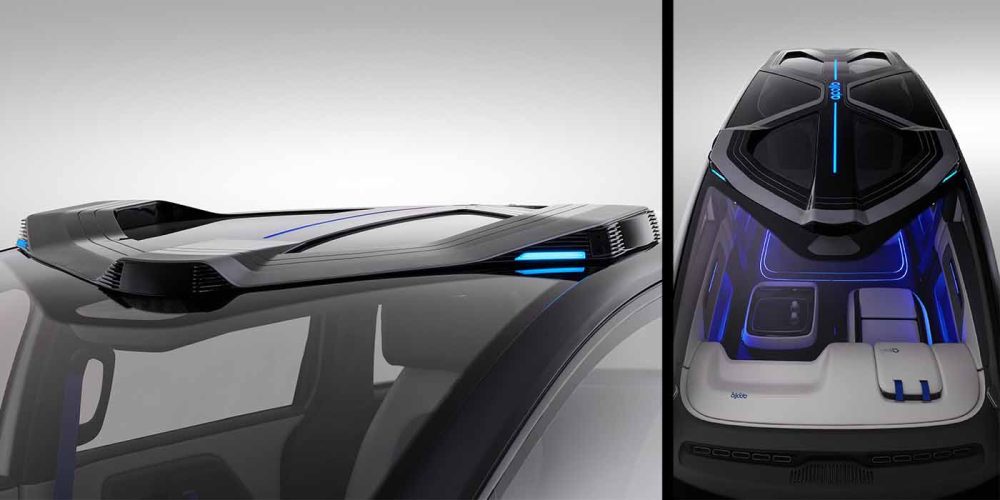
According to Baidu, it aims to deploy a large fleet of RT6 EVs into trial operation on the Apollo Go robotaxi network in the second half of 2023. From there, the size of the RT6 fleet is expected to consistently grow from 10,000 units to 100,000 units.
Since its initial launch in 2020, Apollo Go has expanded to 10 cities in China and provided over one million rides. Baidu plans to expand its robotaxi ride-hailing service to 65 cities by 2025 and 100 cities in 2030. The Apollo RT6 will certainly be a part of that expansion.
Check out the official robotaxi launch video from Baidu below:
FTC: We use income earning auto affiliate links. More.
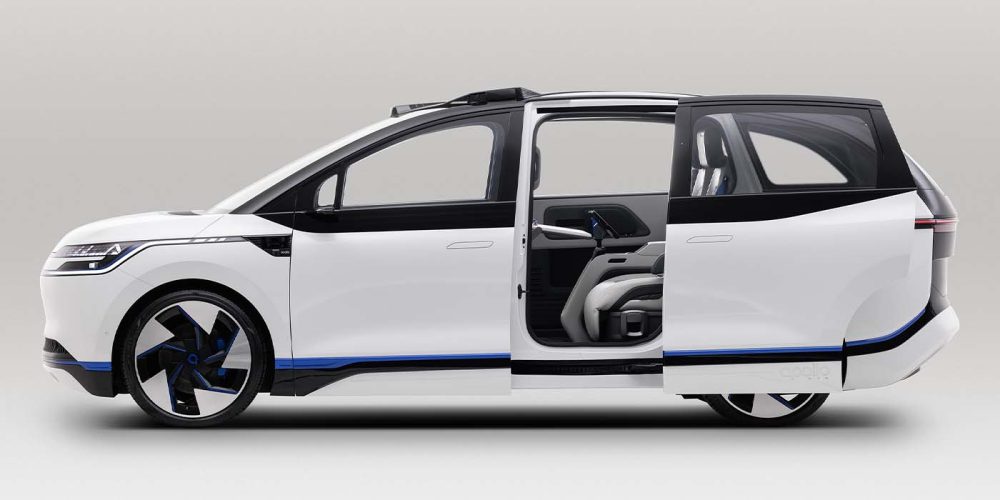
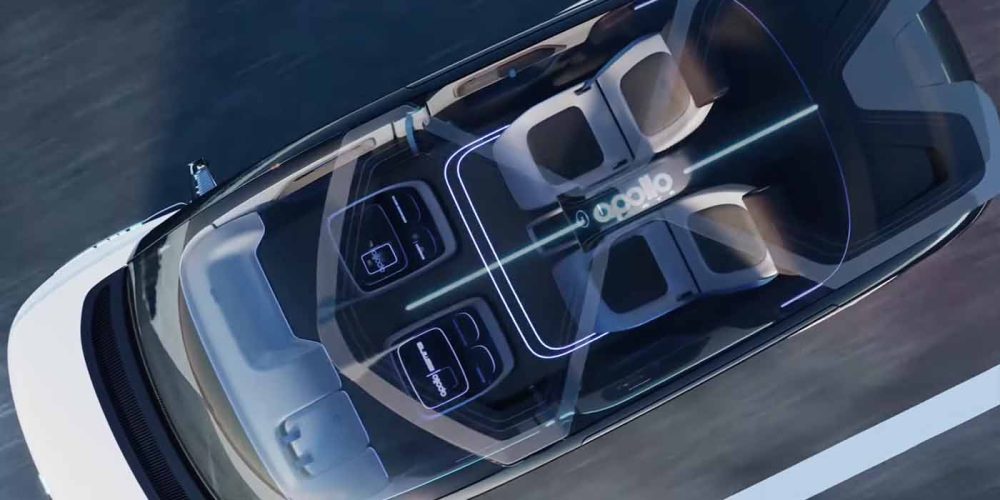
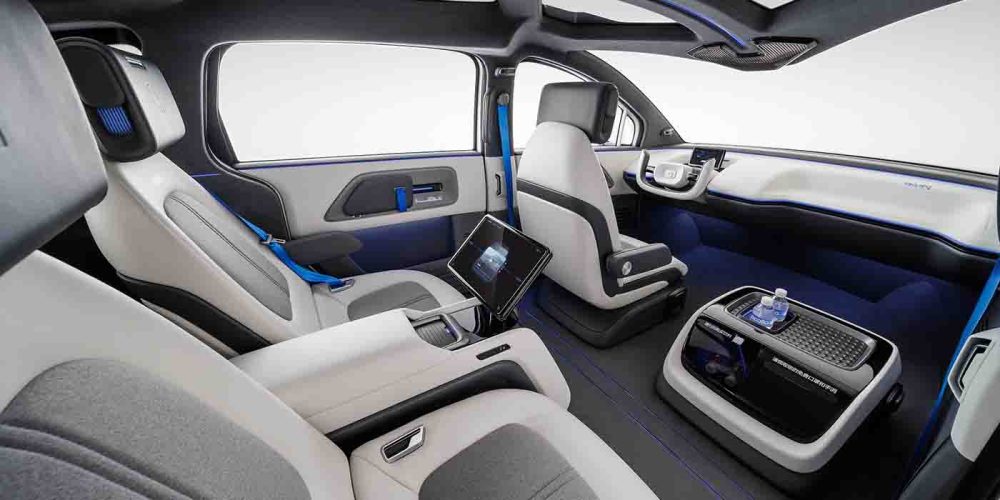
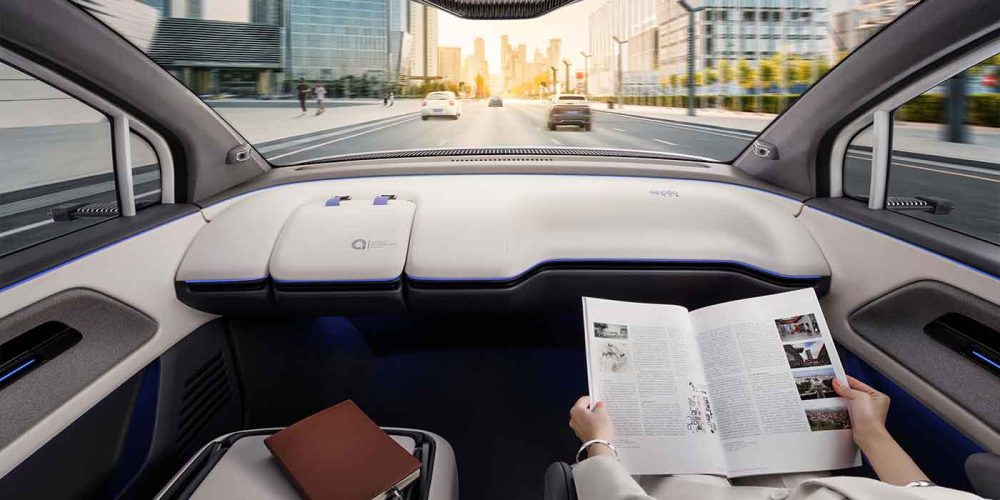



Comments